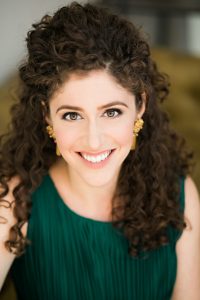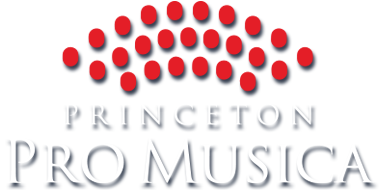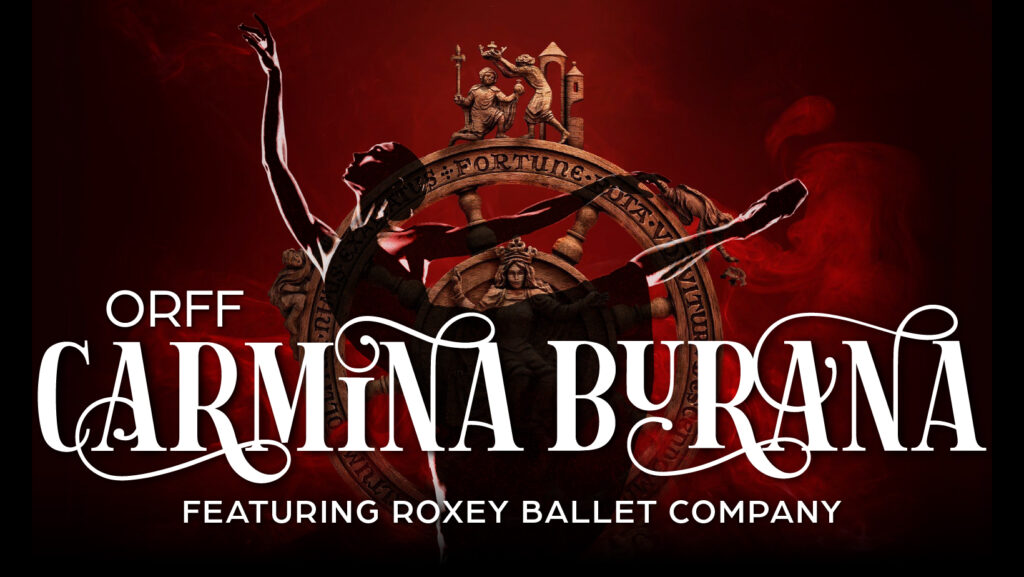Annelies
Music by James Whitbourn
Libretto by Melanie Challenger, based on Anne Frank: The Diary of a Young Girl
Lily Arbisser, soprano
March 13, 2022
4:00 PM
Richardson Auditorium
Princeton University
Annelies
Music by James Whitbourn
Libretto by Melanie Challenger, based on Anne Frank: The Diary of a Young Girl
Lily Arbisser, soprano
March 13, 2022
4:00 PM
Richardson Auditorium
Princeton University
Click above to listen to the Director's Notes
Use Up/Down Arrow keys to increase or decrease volume.
DIRECTOR'S NOTES
This performance was originally scheduled for spring of 2020, marking seventy-five years since the end of World War II, seventy-five years since the liberation of the concentration camps, the end of one of the darkest periods in our history, and the year the world lost a voice of hope and light—the voice of Anne Frank. When the Nazis gained control of Germany, Anne and her family moved from Frankfurt to Amsterdam. For her 13th birthday in June 1942, Anne received a book that she would use as her diary. The family went into hiding in July 1942, for two years, until their capture by the gestapo in August 1944. They were sent to concentration camps. Anne and her sister Margot were transferred from Auschwitz to Bergen-Belsen, where they died, just weeks before British soldiers would liberate it on April 15, 1945. But rather than become one of those millions whose stories we may never know, Annelies Frank became known—to the world. Her diary, published in dozens of languages, has taken countless readers directly into her story—into her many observations, wise beyond her years; into her dreams and fantasies; into her fears; and, ultimately, into her almost miraculous optimism. Today Princeton Pro Musica presents the first major choral setting of the words of the diary: Annelies, by composer James Whitbourn and librettist Melanie Challenger.
Challenger’s libretto, a thoughtful curation of assorted diary entries arrayed in fourteen movements, is a work of art unto itself, teeming with Anne’s humanity. The entries she chose capture the dramatic, wrenching ups and downs of Anne’s situation. The libretto’s most urgent moments relay the episodes in which Anne fears that she and her family have been discovered in their hiding spot and will be captured: “Eight pounding hearts, footsteps on the stairs, a rattling on the bookcase. Suddenly, a couple of bangs. Doors slammed inside the house.” Other entries reveal her awareness of the devastating sadness and helplessness of the situation, buoyed by her empathy. She recounts a dream:
Last night, just as I was falling asleep, an old friend appeared before me. I saw her there, dressed in rags, her face thin and worn. She looked at me with such sadness. Anne, why have you deserted me? Help me, help me, rescue me from this hell! She symbolizes to me the suffering of all my friends, and all the Jews. When I pray for her, I pray for all those in need. Merciful God, comfort her, remain with her so she won’t be alone.
Other entries, like these from March 1944, convey Anne’s profound, unvarnished wisdom: “If you become part of the suffering, you’d be entirely lost;” “Beauty remains, even in misfortune. One who is happy will make others happy, one who has courage will never die in misery.” To relay the Frank family’s capture, and evoke the horrendous suffering and murder of millions, Challenger includes words from sources other than Anne’s diary: first a contemporary report, delivered simply, chillingly, as plainchant in the tenor and bass voices; and then passages from the Book of Psalms, and the Book of Lamentations.
The composer, James Whitbourn, says of the libretto: “Rarely have I found a text so compelling and the inspiration for so much thought, simply as a document in its own right. But as time went on, and as I worked on the score, I became more aware of Anne Frank as a contemporary person.” He had the opportunity to meet members of Anne’s family and noted:
These personal family links influenced the kind of piece it was destined to be, and at times it felt as though I were putting together the music for the family's memorial service. It was to be a commemorative work, not only for Anne Frank, but for those by whose side she lived, those she watched with penetrating eyes, and those voiceless millions who shared her fate.
Whitbourn’s music gives voice to Anne herself, and to those voiceless millions using a variety of choral and orchestral textures. The score calls for a full chorus as well as a small concertante ensemble—a chamber choir with a different, more transparent sound. The full chorus ports the weight of both the most dramatic scenes—near captures—and some of the most universal pronouncements. The concertante conveys some of the most simple, profound ideas. As for the soprano soloist, the multiple modes Whitbourn has created for her—different tempos, different registers—reflect the facets of Anne’s personality and perspective. She can be pensive, where the soprano sings in long phrases necessitating a mature vocalist. She can be playful, as when her delight at seagulls swooping outside her windows conjures a spinning waltz with the solo violin, or when she turns turning bath time into a music hall oom pah oom pah ditty. And her presence looms between her sung diary entries: the first time we hear the soprano she is offstage and sings a wordless vocalize. The orchestral textures, too, sharpen the image of Anne in the mind’s eye. A battery of percussion and trio of trombones heighten the more heart-pounding moments. At other times the texture is reduced to just soprano solo and piano, or a few strings. Gorgeous lyrical passages for solo instruments throughout convey the emotive context latent in the spaces between Anne’s lines.
This remarkable piece of music captures more than Anne’s words. In Whitbourn’s summation:
Annelies is a piece of musical portraiture, in which the essence of a young girl is portrayed in the fragile medium of the human breath. The particular portrait will be constructed in the minds of all who hear those sounds on this day and in this place. Through it, the wisdom and perception of Anne Frank is there to teach us all.
Reading and then hearing her words, her convictions amplified and broadcast through music, I realize that she was, and is, the very model of a young person, imbued with a sense of purpose, fueled by hope, ready to impugn indifference and inertia. That she is, above all, hopeful, links my heart to the promise of some of the heroically impassioned young women currently confronting our world’s injustices and threats head on, who, like Anne, express themselves with conviction beyond their years. The diary entry chosen for the last movement encapsulates both Anne’s hope and the hope she instills in her many readers: “I see the world being slowly turned into wilderness. I hear the approaching thunder, that one day will destroy us too. And yet, when I look at the sky, I feel that everything will change for the better.”
Anne would not live to see her own manifestation of that “blue sky.” Were she alive today, she’d celebrate her ninety-third birthday this June. Singing Anne’s words will never bring back the millions who were murdered then, and the publication of her diary did not directly prevent further genocides and atrocities in the seventy-seven years since she perished. But in a world where those who would deny the Holocaust have platforms for spreading lies and hate, and where propaganda is once again being deployed to vilify “others” and distract from the senseless violence, destruction, and murder unfolding before our very eyes, we must take every opportunity to read each other’s words, and see each other as individuals in a broader human community. On April 11, 1944, Anne wrote: “One day this terrible war will be over, and we’ll be people again, and not just Jews.” At their most potent, works of art can illuminate and amplify our individual humanity, engender empathy and understanding, and beat back the anesthetizing effect of the plural nouns of newscasts. Civilians, refugees, Jews, Ukrainians, and the heartless casualties: millions of individuals, each with loves, fears, and hopes. May we seek to see their humanity as closely as this work allows us to see Anne’s.
PROGRAM
Annelies James Whitbourn
- Introit - prelude
- The capture foretold
- The plan to go into hiding
- The last night at home and arrival at the Annexe
- Life in hiding
- Courage
- Fear of capture and the second break-in
- Sinfonia (Kyrie)
- The Dream
- Devastation of the outside world
- Passing of time
- The hope of liberation and a spring awakening
- The capture and the concentration camp
- Anne’s meditation
I Believe in the Sun Mark A. Miller
SOLOIST
 Lily Arbisser is an “individual-timbred soprano” (Opera News) whose voice “floats effortlessly” (www.feastofmusic.com) over the orchestra.Highlights of recent seasons include joining Ravinia’s Steans Music Institute in Chicago as a vocal fellow, winning first prize in the National Federation of Music Clubs’ (NFMC) Biennial Young Artist Competition, and debuting at Weill Recital Hall at Carnegie Hall as Suzu in Riyoichi Saito’s chamber opera Dojoji.
Lily Arbisser is an “individual-timbred soprano” (Opera News) whose voice “floats effortlessly” (www.feastofmusic.com) over the orchestra.Highlights of recent seasons include joining Ravinia’s Steans Music Institute in Chicago as a vocal fellow, winning first prize in the National Federation of Music Clubs’ (NFMC) Biennial Young Artist Competition, and debuting at Weill Recital Hall at Carnegie Hall as Suzu in Riyoichi Saito’s chamber opera Dojoji.
Lily’s 2022 season begins with solo appearances in the New York City area and in Iowa. She sings a live-stream recital sponsored by Princeton Pro Musica, which Lily curated to highlight the voices of Jewish composers whose lives were irrevocably altered by the events of WWII and the Holocaust. Then, she is very honored to join forces with Ryan James Brandau and Princeton Pro Musica for their performance of James Whitbourn’s deeply moving oratorio Annelies. Next, Lily returns to her hometown, Davenport, Iowa, for an exciting debut with Chamber Music Quad Cities as she and pianist Thomas Sauer present newly commissioned art songs setting poems by Quad Cities-area poets.
Lily is grateful for the opportunities her wonderful parents and great Iowa public school education gave her to access the arts from a young age. In addition to voice, she studied many instruments, distinguishing herself on cello, French horn, and piano. At the age of seventeen, she was featured as the piano soloist in a performance of Gershwin’s Rhapsody in Blue with the Quad City Wind Ensemble. Lily graduated summa cum laude and Phi Beta Kappa from Princeton University with a Bachelor of the Arts in Art and Archeology and a Certificate in Vocal Performance. She holds a Master of Music degree from Mannes College.
When not singing, she can be found outdoors cultivating a newfound passion for soil science, pollinators, and native plant gardening. www.lilyarbisser.com
TEXTS
Annelies
1 Introit – prelude
2 The capture foretold
Up above you can hear the breathing,
eight pounding hearts, footsteps on the stairs,
a rattling on the bookcase.
Suddenly, a couple of bangs.
Doors slammed inside the house.
(11th April 1944)
We are in blue sky,
surrounded by black clouds.
See it, the perfectly round spot?
but the clouds are moving in,
and the ring between danger grows smaller.
We look at the fighting below,
and the peace and beauty above,
but the dark mass of clouds looms before us,
and tries to crush us.
O ring, ring, open wide and let us out!
(8th November 1943)
3 The plan to go into hiding
When would we go into hiding?
Where would we hide?
In the city? In the country? In a house? In a shack?
(8th July 1942)
These questions kept running through my mind.
I started packing my important belongings.
The first thing was my diary.
Memories mean more to me than dresses.
(8th July 1942)
Ik zal, hoop ik, aan jou alles kunnen toevertrouwen, zoals
ik het nog aan niemand gekund heb, en ik hoop dat je
een grote steun voor me zult zijn.
(12th June 1942)
Trans.: I hope I will be able to entrust everything to you, such as I haven't been able to do it to anyone,
and I hope you will be a great support for me.
It seems like years since Sunday morning.
So much has happened,
itʼs as if the whole world had
suddenly turned upside down.
(8th July 1942)
4 The last night at home and arrival at the annexe
My last night in my own bed.
A warm rain fell.
The four of us wrapped in layers of clothing,
the stripped beds, the breakfast things on the table.
We closed the door behind us.
(8th July 1942)
Walking in the pouring rain,
walking down the street,
each of us with a satchel filled to the brim.
(9th July 1942)
We arrived at Prinsengracht,
led through the long passage
and up the wooden staircase
to the Annexe.
The door was shut behind us,
leaving us alone.
Alone.
Then for the first time,
I found a moment to tell you about it,
to realise what had happened to me
and what was about to happen.
(10th July 1942)
Weʼre Jews in chains,
chained to one spot,
without any rights,
a thousand obligations.
We must be brave
and trust in God.
(11th April 1944)
5 Life in hiding
The days here are very quiet.
(1st October 1942)
Having to sit still all day
and not say a word,
you can imagine how
hard that is for me.
On ordinary days, we speak in a whisper.
Not being able to talk is worse.
(29th September 1942)
The silence makes me so nervous,
but the chiming of the Westertoren clock
reassures me at night.
(11th July 1942)
You no doubt want to hear
what I think of life in hiding?
(11th July 1942)
The blue sky, the bare chestnut tree,
glistening with dew,
the seagulls, glinting with silver
swooping through the air.
As long as this exists,
this sunshine and this cloudless sky,
how can I be sad?
(23rd February 1944)
Prospectus and Guide to the Secret Annexe.
A Unique Facility for the Temporary Accommodation of
Jews and Other Dispossessed Persons.
Now our Annexe has truly become a secret,
a bookcase has been built in front of the entrance.
It swings on its hinges
and opens like a door.
It is Open All Year Round,
Located in Beautiful, Quiet, Wooded Surroundings,
In the Heart of Amsterdam.
Inside it is Necessary to Speak Softly at all times,
Singing is Permissible, only Softly and After Six pm!
(17th November 1942)
The strangest things happen when youʼre in hiding.
Try to picture this.
We scrub ourselves in a tin tub,
since the curtains are drawn,
we scrub ourselves in the dark,
while one looks out the window
and gazes at the endlessly amusing people.
(29th September 1942)
The children run around in thin shirts
and wooden clogs.
They have no coats, no socks,
no caps and no one to help them.
Gnawing on a carrot to still their hunger,
they walk from their cold houses through cold streets.
(13th January 1942)
One day this terrible war will be over,
and weʼll be people again,
and not just Jews.
(11th April 1944)
6 Courage
If you become part of the suffering,
youʼd be entirely lost.
(7th March 1944)
Der Winter ist vergangen.
Ich sehʼ des Maien Schein;
Ich sehʼ die Blümlein prangen;
Des ist mein Herz erfreut.
Da singt Frau Nachtigalle
Und manchʼ Waldvögelein.
(German trad.)
The winter is over,
I see the light of May;
I see blossoms resplendent;
and my heart is pleased.
There sings Mrs. Nightingale
and some little forest birds
Beauty remains,
even in misfortune.
One who is happy will make others happy,
one who has courage will never die in misery.
(7th March 1944)
Ade, meinʼ Allerliebste!
Ade, schönʼs Blümelein!
Ade, schönʼ Rosenblume;
Es muß geschieden sein!
Das Herz in meinem Leibe
Gehört ja allzeit dein.
(German trad.)
Goodbye, my beloved!
Goodbye, beautiful blossoms!
Goodbye, beautiful rose flower;
I must leave you.
My love for you will
burn in my heart forever
If you become part of the suffering,
you’ll be entirely lost.
(7th March 1944)
Himmelhoch jauchzend, zu Tode betrübt.
On top of the word, or in the depths of depair.
(24 December 1942)
7 Fear of capture and the second break-in
In the evenings, when itʼs dark,
lines of good innocent people
and crying children
walk on and on,
ordered by men who bully
and beat them.
No one is spared,
all are marched to their death.
(19th November 1942)
Westerbork! Westerbork!
Night after night,
green and grey vehicles
cruise the streets
and knock on every door.
(19th November 1942)
Westerbork! Westerbork!
Sshh. I heard a sound from the bookcase,
hammering on the door.
We turned white with fear.
Had he heard something, this stranger?
Open up! Open up!
In my imagination,
the man kept growing and growing,
until he become a giant,
the cruellest fascist in the world.
(20th October 1942)
8 Kyrie – Sinfonia
Kyrie eleison.
(Greek liturgical)
Help us. Rescue us from this hell.
(27th November 1942)
We must be brave and trust in God.
(11th April 1944)
9 The dream
Last night, just as I was falling asleep,
an old friend appeared before me.
I saw her there,
dressed in rags,
her face thin and worn.
She looked at me with such sadness.
Anne, why have you deserted me?
Help me, help me, rescue me from this hell!
(27th November 1942)
To me,
she is the suffering of all my friends,
and all the Jews.
When I pray for her,
I pray for all those in need.
(6th January 1944)
Merciful God,
comfort her,
remain with her so she wonʼt be alone.
(27th November 1942)
Dear God,
watch over her and bring her back to us.
(29th December 1942)
10 Devastation of the outside world
On Sunday, Amsterdam was bombed.
(19th July 1942)
The planes dived and climbed.
The air was abuzz with the drone of engines.
(26th July 1942)
The streets are in ruins, countless are wounded.
In the smouldering ruins, children search forlornly
for their parents.
(19th July 1942)
It makes me shiver
to think of the dull, distant drone
of approaching destruction.
(19th July 1942)
I wander from room to room,
climb up and down the stairs
and feel like a songbird,
whose wings have been ripped off
and who keeps hurling itself
against the bars of its dark cage.
(29th October 1942)
ʻLet me out, where thereʼs fresh air and laughter,ʼ
a voice within me cries.
(29th October 1942)
11 Passing of time
The years went by.
Thereʼs a saying: ʻTime heals all wounds,ʼ
thatʼs how it was for me.
(7th January 1944)
Until one day,
I saw my face in the mirror.
It looked so different.
My eyes were clear and deep,
my cheeks were rosy,
my mouth was softer.
I looked happy,
and yet, in my expression, there was something
so sad.
(7th January 1944)
12 The hope of liberation and a spring awakening
This is D-Day,
this is the day.
Fighting will come,
but after this the victory!
Eleven thousand planes,
four thousand boats,
is this the beginning
of the long-awaited liberation?
(6th June 1944)
I walk from one room to another,
breathe through the crack in the window frame,
feel my heart beating as if to say,
ʻFulfil my longing at last…ʼ
I think spring is inside me,
I feel spring awakening,
I feel it in my entire body and soul.
(12th February 1944)
Ich danke dir für all das Gute und Liebe und Schöne.
(7th March 1944)
Thank you, God, for all that is good and dear and beautifulʼ.
13 The capture and the concentration camp
On August the 4th 1944,
a car pulled up at Prinsengracht.
Several figures emerged,
armed, and dressed in civilian clothes.
The eight residents of the Annexe
were taken to prison,
and from there, transported to Westerbork,
and onwards to the concentration camps.
(information from contemporary reports)
The atmosphere is stifling,
outside you donʼt hear a single bird.
A deathly silence hangs in the air.
It clings to me as if it were going to drag me
into the deepest regions of the underworld.
(29th October 1942)
There is no speech or language
where their voice is not heard.
Their sound is gone out
through all the earth,
and their words to the end of the world.
(Psalm xix, verses 3-4)
Their blood have they shed like water,
and there was none who could bury them.
(Psalm lxxix, verse 3)
The young and the old lie on the ground;
the maids and young men are fallen.
(Lamentations ii, verse 21
14 Anne’s Meditation
I see the world being slowly
turned into wilderness.
I hear the approaching thunder,
that one day will destroy us too.
And yet, when I look at the sky,
I feel that everything
will change for the better.
(15 July 1944)
Whenever you feel lonely or sad,
try going to the loft
on a beautiful day and looking
at the sky.
As long as you can look
fearlessly at the sky,
you’ll know you’re pure within.
(23 February 1944)
Libretto © Copyright 2005 by Melanie Challenger and © Copyright 1991 by The Anne Frank-Fonds, Basel, Switzerland
I Believe in the Sun
I believe in the sun
even when it is not shining
And I believe in love,
even when there’s no one there.
And I believe in God,
even when he is silent.
[Full Text of the Poem]
I believe in the sun
even when it is not shining
And I believe in love,
even when there’s no one there.
And I believe in God,
even when he is silent.
I believe through any trial,
there is always a way
But sometimes in this suffering
and hopeless despair
My heart cries for shelter,
to know someone’s there
But a voice rises within me, saying hold on
my child, I’ll give you strength,
I’ll give you hope. Just stay a little while.
I believe in the sun
even when it is not shining
And I believe in love
even when there’s no one there
But I believe in God
even when he is silent
I believe through any trial
there is always a way.
May there someday be sunshine
May there someday be happiness
May there someday be love
May there someday be peace….
– Unknown
CHORUS
| SOPRANO
Blessing Agunwamba TENOR Timothy Carpenter |
ALTO
LaVerna Albury BASS Charles Appel *Concertante |
ORCHESTRA
| Violin 1 Urara Mogi Concertmaster Elena Chernova- Davis The Frank L. Biletsky Chair Cheng-Chih Kevin Tsai William Barney Stevens Linda Howard Katherine Hannauer Violin 2 Viola Cello |
Flute Mary Schmidt Oboe Clarinet Bassoon Piano Timpani Percussion Personnel Manager |
ACKNOWLEDGEMENTS
Princeton Pro Musica wishes to thank the following individuals and organizations for providing their special help:
Allegra Print & Marketing
Discover Jersey Arts
New Jersey State Council on the Arts
Princeton Area Community Foundation
Princeton Regional Chamber of Commerce
WWFM, The Classical Network
Dr. Elayne Grossman, for her enlightening lecture
Lily Arbisser Shorr, for her moving recital
The staff of Richardson Auditorium
SUPPORT STAFF VOLUNTEERS
VOLUNTEER COORDINATOR
Janet Breslin
BOOKKEEPER
Maureen Kyle
CONCERT MANAGER
Dianne D. Miles
DIGITAL PROGRAM
Dianne D. Miles
CHAMBER CHORUS COORDINATOR
Fran Perlman
MUSIC COORDINATOR
Kim Neighbor
SECTION LEADERS
Candus Hedberg, soprano
Kim Neighbor, alto
Gary Gregg, tenor
Richard Farris, bass
WEBMASTER
Kenny Litvack
CONCERT HOUSE STAFF
Box Office
Kevin Dziuba
Ushers:
Claudia Classon
Al Kleindienst
Jacques Lebel
Maureen Lebel
Susan Sumutka
Annie Thomas
Vaccine Checkers:
Steve Berger
Walter Dixon
Charles Repka
Donald Worrell



